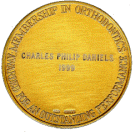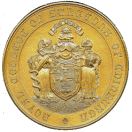[spb_text_block animation=”none” animation_delay=”0″ padding_vertical=”0″ padding_horizontal=”0″ width=”1/1″ el_position=”first last”]
Dr Charles Daniels
has a track record of excellence in all aspects of orthodontic practice
After several years of experience in general dentistry, a spell as a hospital registrar, university researcher and finally a specialist trainee in orthodontics, I was thrilled to be awarded 3 UK national prizes for orthodontic treatment results, research and clinical knowledge. Although I possess qualifications more suited to a university professor I would admit to not having the temperament to endure the university politics. I feel at home in specialist practice, with the freedom to invest in new techniques and technologies and the knowledge that 100% of my effort is used to look after my patients and my staff. I take pride in keeping North Sydney Orthodontics at the forefront of orthodontic advances while evaluating new developments with a critical attitude of a true research worker. I especially enjoy complex cases requiring multiple disciplines, and have a steadily growing love for invisible orthodontic treatment.
How to become an expert in orthodontics
Orthodontic practice is different from general dentistry because the time period over which a treatment may be planned and eventually executed can be many years. Compared to the instant fixes of fillings and pain relief, the pace of orthodontic corrections can seem slow. In addition, the range and complexity of orthodontic problems is both wide and deep and requires a good understanding of general dentistry as well as the specifics of growth and orthodontic biomechanics. Project management is probably a better way of thinking about the orthodontist’s mindset. Only a qualified dentist can apply to train as an orthodontist and entry to nationally recognized orthodontic training is very competitive. Specialist training is full-time and requires a considerable sacrifice of income and commitment to years of additional study – this commitment is one of the distinctions between a specialist orthodontist and a dentist offering orthodontics. An important element of specialist training is in research methodology, because without a scientific training it not possible to critically assess the many unjustifiable claims for novel devices and techniques. This is a particular area of weakness of general practitioners who are easily sold on ‘the latest treatment method’ by persuasive salesmen.
Dr Daniels early career – training as a dentist
In 1984 Dr Daniels won the Brockhouse Entrance Scholarship to Birmingham University UK to study dentistry and qualified in 1988. He worked full-time in general dental practice for four years before becoming ‘Resident’ in oral surgery and orthodontics in Royal Shrewsbury Hospital, and the Princess Royal Hospital Telford 1993-1994. These early years gave him extensive experience and understanding in the practice of routine dentistry and hospital specialty of oral surgery, as well as a glimpse of the world of specialist orthodontics.
Specialist orthodontic training
He was then appointed research fellow at the department of Child Dental Health, in Cardiff UK, and worked on an international policy and research initiative to formulate a quality assurance mechanism for orthodontic care, The EUROQUAL group. During this period he developed (the ICON index), an internationally validated Health Service Index to measure the quality of orthodontic treatment. He was appointed registrar in orthodontics in 1996 working for Cardiff Dental Hospital, and East Glamorgan Hospital. In 1998 he won the prestigious British Orthodontic Society Chapman Prize, which is awarded for an original piece of research work of interest to the practice of orthodontics, and in 1999 he was acclaimed the ‘most outstanding’ examination candidate by the Royal College of Surgeons of Edinburgh, from a large international field of orthodontists, and was awarded the William Houston ‘Gold’ medal, for 1999.


At the British Orthodontic Society annual conference in 1999 he was awarded the ‘Optident’ Award for presenting the most outstanding clinical cases in the postgraduate clinical cases forum.
Advanced orthodontic training for consultant practice
In 1999 he was appointed senior registrar at Cardiff Dental Hospital, and the Royal Gwent Hospital and also worked in private practice. This senior position provided experience of the most difficult cases especially management of cleft palate cases and orthognathic surgery cases. He completed his Master of Dental Sciences thesis in 2000 and it was awarded with Distinction. In 2002 he passed the Fellowship in Orthodontics of the combined royal surgical colleges of the United Kingdom marking the pinnacle of formal orthodontic training. In 2003 Dr Daniels emigrated to Australia and worked exclusively for a major health fund before establishing North Sydney Orthodontics in 2006.
What do his qualifications mean?
Bachelor of Dental Surgery BDS. is the basic qualification in dentistry.
Master of Dental Science MScD is a 3 year full-time orthodontic specialty training in a university, involving, research, didactic instruction, supervised and assessed clinical training, examination by written papers, vivas, presentation and assessment of treatment cases and the preparation and submission of a dissertation.
Doctor of Philosophy PhD- Dr Daniels undertook 4 years of formal research evaluating the professional attitudes to orthodontic treatment quality. His research produced a health service index to assess quality of orthodontic care. The PhD is the highest degree conferred by a university. The qualification is awarded following defense of the thesis by an externally appointed professor.
Fellowship in Dental Surgery of the Royal College of Surgeons FDSRCS. Professional examinations in basic clinical sciences, and a specialty area in Dental Surgery. The candidate must have at least three years experience in nationally recognized training jobs recognized by the College. Royal College examinations are highly regarded because they are independent of the universities and hospitals that provide training, the examinations are tough and failures common).
Membership in Orthodontics of the Royal College of Surgeons MOrth RCS. This professional examination covers all aspects of clinical orthodontic practice. Treated cases are submitted by the candidate and evaluated and discussed by the examiners and the candidate is then ‘cross-examined’ to assess their understanding of the case. Patients must be examined, diagnosed and discussed.
Fellowship in Orthodontics of the Royal College of Surgeons FDS Orth RCS. This is the highest examination in orthodontics, The examination covers advanced clinical management, discussion of submitted cases and professional training to fulfill the role of teacher, researcher and consultant. It is a post-specialty examination and candidates are only eligible to sit for it, once they have they have at least 2 years additional training beyond the normal level required for ‘High Street’ practice.
Teaching
He has lectured courses to undergraduates, qualified dentists and orthodontists in the UK, the Netherlands and the USA. He has authored several scientific articles published in the orthodontic literature and is credited with contributions to several books. He has given scientific presentations in the European and British Orthodontic conferences.
Current Affiliations
Member of the Australian Dental Association
Member of the Australian Society of Orthodontics
Member of the British Orthodontic Society
Member of the American Association of Orthodontists
Fellow of the World Federation of Orthodontists
Fellow of the Royal College of Surgeons of England Faculty of Dental Surgery
Orthodontic Fellow of the Royal College of Surgeons of England
Orthodontic Member of the Royal College of Surgeons of Edinburgh
Member of the Royal Australasian College of Dental Surgery (orthodontic stream)
Australian and New Zealand Society of Pediatric Dentistry
Member of the the Australasian Society of Lingual Orthodontists
[/spb_text_block]
